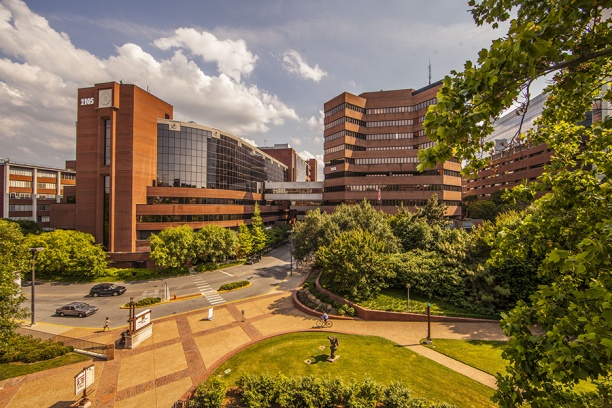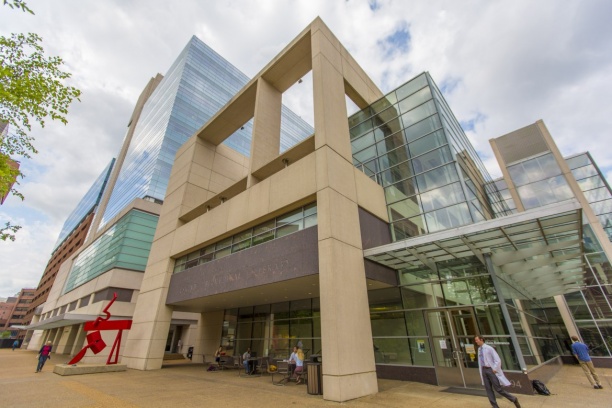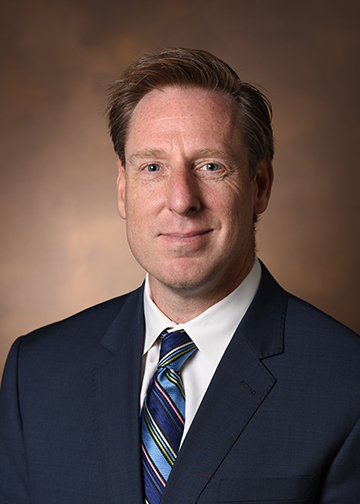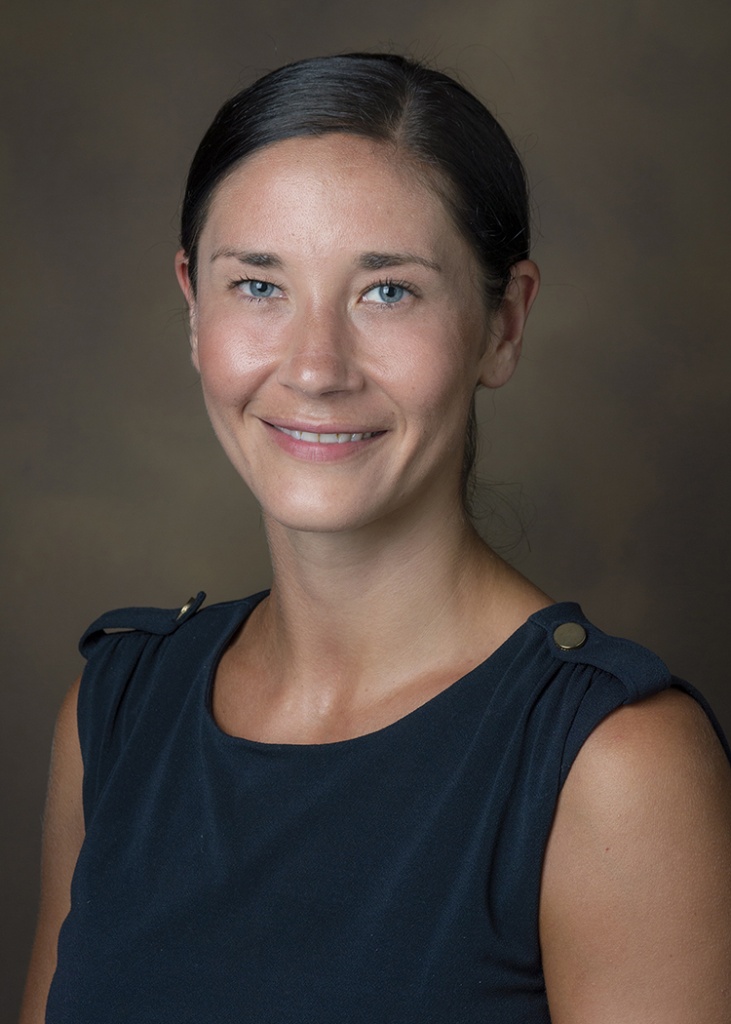Program Overview
The Vanderbilt Fellowship in Vascular and Endovascular surgery is a two-year ACGME-approved fellowship offered to surgeons who have completed their residency in an accredited general surgery program (5+2 Pathway).
“Our program provides trainees with a diverse and robust clinical experience to prepare our fellows for either an academic or community practice. Our team is dedicated to teaching and providing a welcoming and dynamic environment for surgeons entering the specialty of vascular surgery. We hope you choose to learn more about our program and consider your vascular training with our team.”
|
|
Application Information
One position is filled each year through the National Residency Matching Program. Applications can be sought by registration with the Electronic Residency Application System (ERAS). Applicants must be at least in their fourth year of training in an accredited general surgery residency program. At the time of matriculation, the entering fellow must have completed general surgical residency and be eligible for certification or certified by the American Board of Surgery.
Your complete application must include:
- Current CV
- MSPE
- Medical School Diploma
- Medical School Transcript
- USMLE Transcript
- ABSITE Score Reports
- 3 Letters of Recommendation (includes one from General Surgery Program Director)
- Personal Statement
- Photo
- Visa Status (if applicable)
Lucy Lastovic
GME Program Administrator
Vascular Surgery Fellowship, General Surgery Residency
vascular.surgery.fellowship@vumc.org
Facilities/Hospitals
Vanderbilt University Medical Center is an ideal place to train. Vanderbilt's winning qualities include our community and regional location, nationally highly ranked medical and surgical programs, high quality faculty and funded research.
Vanderbilt University Medical Center (VUMC) boasts 1,105 total beds, including 834 in Vanderbilt Hospital and 271 in the Monroe-Carell Jr. Children's Hospital. Vanderbilt's 56 adult and 16 pediatric ORs perform over 51,000 surgeries annually. Vanderbilt is a level 1 trauma center provides trauma care for 80,000 square miles. The Department of Vascular Surgery is part of the Vanderbilt Heart and Vascular Institute. This allows consolidation of clinical care for patients with cardiovascular disease in a single location with all specialists involved at hand to maximize both patient care and educational experiences. Each year, the Division of Vascular Surgery provides comprehensive care to approximately 6,000 patients who suffer from vascular diseases and conditions. Department Chair Daniel Clair, MD, directs an IAC-accredited noninvasive vascular laboratory that performs 5,000 vascular studies on an annual basis and is supported by five full- or part-time vascular technologists (RVTs).
Fellows will also rotate at the Nashville VA Medical Center located next to Vanderbilt Medical Center Campus. The Nashville VA is a 334-bed acute care facility and is part of an integrated healthcare system that provides a continuum of outpatient and inpatient are to our nations Veterans. While rotating at the Nashville VA, fellows will gain experience in complex hemodialysis access, peripheral vascular disease, carotid stenosis, aortic aneurysms and treat the full spectrum of vascular diseases experienced by the veteran population.
Research
Faculty members in the Department of Vascular Surgery oversee a wide spectrum of research programs, and fellows are encouraged to participate in basic or clinical research. During the first year, fellows are expected to develop a patient safety project, and many of these have evolved into clinical research studies leading to publication in peer review journals. Fellows may also participate in ongoing basic science projects in funded research laboratories.
The vascular surgery department has a robust clinical and basic science research program. Current research includes investigations into biomarkers of aortic aneurysm growth, amino acid metabolism in peripheral arterial disease, cellularized tissue product in treatment of diabetic and venous ulcers, complex aortic branched device use- among many others.
Conferences & Seminars
Vascular Conference
A weekly conference involving a structured series of lectures covering basic and clinical sciences fundamental to vascular surgery. Curriculum is based on Vascular SCORE. Lectures are assigned to residents rotating on the vascular surgery services, the PGY6 fellow, and faculty members.
VA Hospital Case Conference
A weekly preoperative conference at which all potential operative cases are discussed in detail with faculty and trainees assigned to the VA vascular surgery service. The conference is mandatory for the PGY6 fellow, and the PGY5 resident assigned to the VA vascular service is responsible for organizing the conference and presenting the cases.
Department of Vascular Surgery Morbidity and Mortality Conference
A monthly conference in which all patients on the VUMC service who developed complications and/or deaths are discussed in an open forum with faculty and trainees from the Department. The PGY7 fellow is responsible for organizing the conference and presenting cases.
Multidisciplinary Aortic Conference
A weekly conference focusing on cases involving aortic disease of all types. The conference is attended by faculty and trainees from vascular surgery, cardiothoracic surgery, cardiology, and vascular medicine services.
Surgery Morbidity and Mortality Conference
A weekly conference in which cases involving morbidity and/or mortality are discussed in an open forum, with an emphasis on systems-based causes. Cases are presented by the trainee who served as primary surgeon, with commentary and discussion by the associated attending. The conference is attended by faculty and trainees from all divisions within the department, and each division presents cases on a rotating basis. Vascular surgery presents during the second week of the month, and the PGY7 fellow is responsible for the presentation.
Surgery Grand Rounds
A weekly conference involving a series of lectures representing all surgical disciplines, including vascular surgery. One Grand Rounds each year is devoted to the Dale Lecture, given by the invited visiting professor in vascular surgery.
Journal Club
Five times each year, a conference is held at which three papers from the recent literature that are of interest to vascular surgeons are discussed in detail. PGY5 general surgery chief at VA vascular service, PGY6 fellow, and PGY7 fellow each present one paper.




